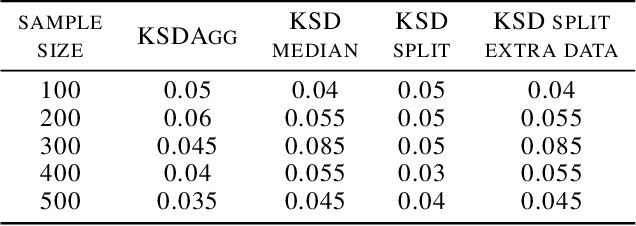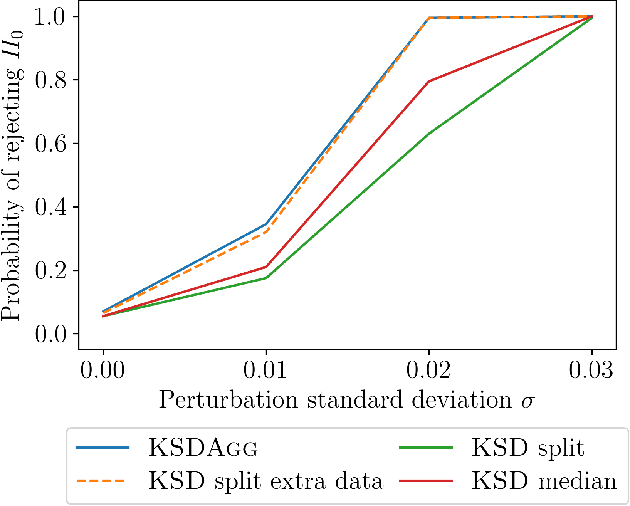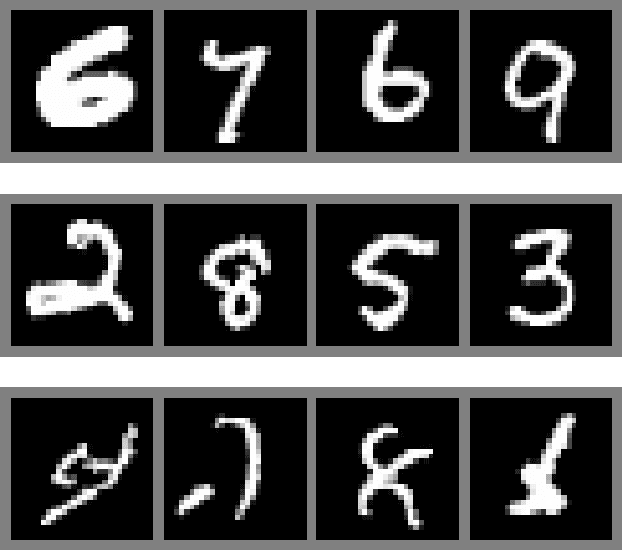KSD Aggregated Goodness-of-fit Test
Paper and Code
Feb 03, 2022



We investigate properties of goodness-of-fit tests based on the Kernel Stein Discrepancy (KSD). We introduce a strategy to construct a test, called KSDAgg, which aggregates multiple tests with different kernels. KSDAgg avoids splitting the data to perform kernel selection (which leads to a loss in test power), and rather maximises the test power over a collection of kernels. We provide theoretical guarantees on the power of KSDAgg: we show it achieves the smallest uniform separation rate of the collection, up to a logarithmic term. KSDAgg can be computed exactly in practice as it relies either on a parametric bootstrap or on a wild bootstrap to estimate the quantiles and the level corrections. In particular, for the crucial choice of bandwidth of a fixed kernel, it avoids resorting to arbitrary heuristics (such as median or standard deviation) or to data splitting. We find on both synthetic and real-world data that KSDAgg outperforms other state-of-the-art adaptive KSD-based goodness-of-fit testing procedures.
 Add to Chrome
Add to Chrome Add to Firefox
Add to Firefox Add to Edge
Add to Edge